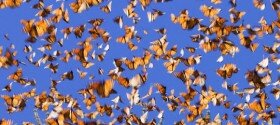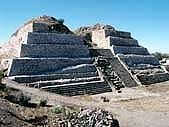Writers Love Readers . . .
Join us for the fun and excitement throughout the 2012 San Miguel Writers’ Conference as a Reader.
Register for a Conference Package to see every speaker, enjoy every delicious meal, rub elbows with your favorite writers – and attend 6 Concurrent Workshops designed especially for Readers. Of course, you can attend a writers’ workshop or two if you want to try something new.
In a Book Group? Quintuple your experience, come to San Miguel with your reading cohorts and register with the Special Group Rate! Here’s the line up for the Pleasures of Reading Workshops:
Session #108 – Thursday, February 16 – 3:15 PM
Reading Like a Writer! with Mary Katherine Wainwright
Based on Francine Prose’s best-selling Reading Like a Writer, this workshop, designed for readers and writers, will explore the pleasures of close reading. We’ll discover that a “close” reading of a work of literature brings us greater delight and deeper understanding than reading solely for “what happens next.”
The participants will first read together a chosen short story (handouts provided in class), and then examine that story using the categories Francine Prose suggests: words, sentences, paragraphs, narration, character, dialogue, details, and gesture. Close reading of the way the story has been crafted will expand the way we book lovers experience our reading moments and will provide writers with a set of tools by which to approach their writing projects. It is no secret that most writers learn to write by reading the work of their predecessors.
Session #208 – Friday, February 17 – 11:00 AM
Emile Zola: The Truth Is Marching On with Béa Aaronson
Emile Zola was a passionate man, obstinate and courageous. He is the father of Naturalism, an exacerbated form of realism which takes you beneath the skin of reality, using the scientific method of documentation and physical experience in order to render a objective picture of any subject matter.
Zola is yet another great 19th century French author, alongside Victor Hugo, Honoré de Balzac, and Flaubert, who changed the depth and scope of literature forever. Not bad for somebody who failed twice at the Baccalaureate!
Come and rediscover the defender of the oppressed, the champion of the French working class, the promoter of impressionist painters, the photographer who lusted for images, the forceful journalist who, at the risk of his own life, changed the face of French and world politics forever. Rediscover the visionary author of the Rougon-Macquart, a 20- volume saga about a two-branched family during the Second Empire. Appreciate his écriture, which demonstrates how environment, social class and genetic memory affect human behavior. Taste the sensuous poetry of his images. Your flesh will tremble with awe and jubilation!
Béa Aaronson invites you to listen to Zola’s life and works, to honor his legacy: L’assomoir, Nana, La curée, Le ventre de Paris, Au Bonheur des Dames, and especially Germinal… in a lecture dedicated to the genial “Italianasse,” as he was denigrated by his enemies.
Session #308 – Friday, February 17 – 3:15 PM
The Legacy Of George Sand: Love And Freedom. (How Much Of Either Do We Have Today?)
with Rosalind Brackenbury
Rosalind will share what brought her to the the writing of her novel, Becoming George Sand. She will discuss some of its major themes, which include the similarities and differences in the lives of two women living two centuries apart, the role of history in determining the choices we make, and whether it is possible to love more than one person at a time. She will talk about questions that have come up in her discussions with readers. What in our own lives do we bring to the experience of reading? Questions and discussion will be encouraged. It is not necessary to have red the novel.
Session #408 – Saturday, February 18 – 11:00 AM
Dancing In…Drinking in…Drenched In…Poetry! with Judyth Hill
An Ecstatic PlayShop: for Everyone who Reads…Loves…or would like to Love…well, maybe Date….or just meet for coffee…ok, flirt with, well….check out….
POETRY!!!
If I feel physically as if the top of my head were taken off, I know that is poetry. – Emily Dickinson
Poems say all the surprising things we didn’t know we needed to say. They whisper, bellow, shout, weep, soar, coo… They are HeartSong and MindMingle…they are cognitive, scrumptious, quiet….rivers running, slow seep, raven’s wing….bougainvillea in radiant winter bloom just glimpsed…angels in the architecture…
Poems make room for the eloquence of the Mysterious to happen…right now, here – to us!!
You have been touched, seared, enlivened…made wise and dumbfounded…by Poem – Right?
OR??? You are scratching your head: Whaaaaaaaaaaaat ..is she TALKING about???
Whatever poems are: we need to Say them…Hear them…Experience them.
We need to feel the shiver up the spine, the satin of vowel, the kapow of consonant…the arc of Silence after a line…and the peace….the Spirit lift – and Soul sting – in the wake of Poem….
Come share this time with Poet, Judyth Hill, and let’s bring ourselves – and poems – alive, in the air….of joyous, WildMind Listening….where all we are and can be is…..Heard…..
Poetry Aloud: Allowed!
Bring a favorite poem (SHORT!!!, Please!!!) by ANYONE to Share!
Session #508 – Saturday, February 18 – 3:15 PM
A Writer’s Journey To A Book: Writing The Monstrous with Rikki Ducornet
In her recent novel, Rikki Ducornet writes in the voice of a psychoanalyst who seduces patients and strangers with equal heat. Ducornet, who has taken on such transgressive voices in the past (the Marquis de Sade and Bishop Landa among others) will read from these works and discuss the book as a place to both confront and reveal dark knowledge.
Session #608 – Sunday, February 19 – 11:00 AM
The Great Lakes: An Omen for the Lakes of the World – and Our Planet with Wayne Grady
The Great Lakes are in danger, and their story is similar to that of many of the fresh-water lakes of the world. This presentation will focus on issues of international concern such as the shipment of water from the Great Lakes to dry areas in the American Southwest, the introduction of non-native species, increased evaporation rates, and the problems caused to all lakes by global warming.
The Earth’s supply of fresh drinking water is dwindling rapidly. The Great Lakes, between Canada and the United States, still contain one-fifth of all the available fresh water on the planet. Although recent clean-up campaigns have been largely successful, the Lakes remain one of North America’s most threatened ecosystems.
Pollution is still a major problem; invasive species continue to arrive at an increasing pace; plans to siphon water out of them for use in the dry south have been only temporarily shelved; and now global warming is wreaking havoc on a host of fronts.
The problems facing the Great Lakes are echoed in large bodies of water everywhere, from Lake Mead to the Arctic Ocean. By understanding the immediate concerns of the Great Lakes, we can hope to find ways to preserve and protect a natural resource that is vital to more than 40 million people.




